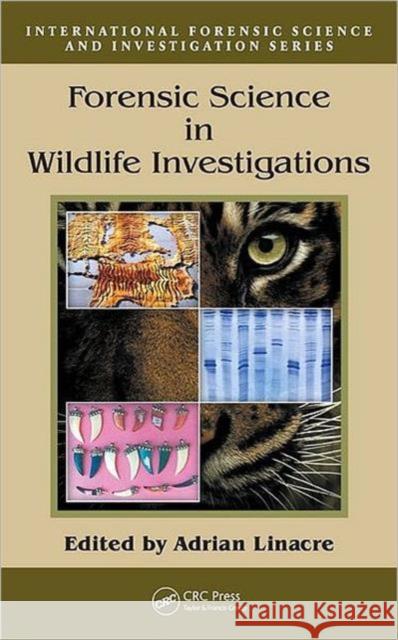Forensic Science in Wildlife Investigations » książka
Forensic Science in Wildlife Investigations
ISBN-13: 9780849304101 / Angielski / Twarda / 2009 / 178 str.
The range of species that fall within the realm of wildlife crimes is extensive, ranging from ferns and orchids to bald eagles and great whales. Solving these crimes is rarely dependent on the testimony of witnesses or victims. An ever-increasing number of research groups are applying scientific tests to animal and plant studies alike. However, until now, whatever progress is available in this area has remained scattered through the literature. Forensic Science in Wildlife Investigations focuses on the developing test methods that can be applied to wildlife crimes. In large part, the tests described are drawn from human-based research. Edited by Adrian Linacre, a noted forensic researcher and one of the principal pioneers active in wildlife forensics, this volume collects the work of others working across the world with both plant and animal investigations. While the book contains valuable approaches that lab investigators can employ, the scientific material is written at a level that requires no more than a fundamental knowledge of biology. Any required scientific information is provided in separate boxes. Offering practical guidance, it helps investigators and lab technicians decide on best methods, including a determination of when basic microscopy is sufficient, when DNA testing should occur, and what tests or combination of tests should be executed in a particular circumstance. The text illustrates how to identify the species and geographic region of origin of an unknown sample. Demonstrating the latest methods through real-world case studies, this volume provides the direction and practical advice needed by legal and police professionals seeking to gain the evidence needed to prosecute wildlife crimes.











